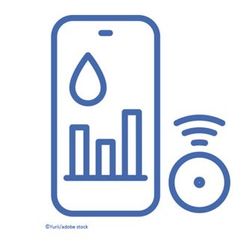© 2025 MJH Life Sciences™ , Patient Care Online – Primary Care News and Clinical Resources. All rights reserved.
It Takes a Multispecialty Team to Support and Sustain Patient-Centered Lifestyle Behavior Change
Lifestyle medicine integrates a spectrum of therapeutic lifestyle interventions best delivered by specialists who are often available to create a "virtual" team.
"Ideally, you want a team of stakeholders that range from health coaches and exercise physiologists, sleep specialists, and psychiatrists to cardiologists and primary care clinicians certified in lifestyle medicine. It's a big pallet."
Lifestyle medicine involves the use of evidence-based lifestyle therapeutic approaches, such as a predominantly whole food, plant-based diet, regular physical activity, adequate sleep, stress management, avoidance of risky substance use, and other non-drug modalities, to prevent, treat, and, oftentimes, reverse the lifestyle-related, chronic disease that’s all too prevalent.1
This is the description of lifestyle medicine on the homepage of The American College of Lifestyle Medicine's official website. Lifestyle medicine is a comprehensive approach to wellness that addresses all domains of an individual's daily life, including interpersonal relationships. To support a patient's journey from chronic lifestyle-related disease through behavior and habit change that results in sustained improved health is a broad mandate, particularly for the primary care clinician with an extensive patient panel.
In a recent interview with Patient Care,© Richard Rosenfeld, MD, MPH, MBA, lead author of a new clinical guideline titled Lifestyle interventions for treatment and remission of type 2 diabetes and prediabetes in adults: a clinical practice guideline from the American College of Lifestyle Medicine2,3 talked about the importance of the multidisciplinary team in ensuring lifestyle medicine interventions work. In the video segment above, Patient Care asked specifically how a clinician who is not part of a medical home or other multipractitioner setting can create a "virtual multidisciplinary" approach, potentially tapping resources within the community.
The following transcript has been lightly edited for clarity and flow.
Patient Care: Would you offer some examples of community resources that could contribute to a “virtual” multidisciplinary" team?
Richard Rosenfeld, MD, MPH, MBA. Well, I think in any community, there are individuals who are certified in lifestyle medicine. These are both professionals and physicians. There are networks that engage these folks. For example, in New York, we have Plant Powered Metro New York, a community-based program that provides 21-day jumpstart schedules, connecting individuals with a coach for healthier, more plant-forward eating. If you're resource-challenged and have limited funds, they offer this for free. However, if you have some resources, there is a modest cost. Many organizations also have support programs, including culinary workshops. There are also shared medical appointments that can be set up in many settings. Even at the most basic level, almost all insurance plans will cover a prescription for a registered dietitian nutritionist, an RDN. So, you can simply write a prescription for nutritional counseling and support. Ideally, though, you want a team. That team essentially involves all the stakeholders we included in our guideline, which ranges from health coaches and exercise physiologists to sleep specialists, psychiatrists, cardiologists, and primary care lifestyle professionals. So, it's a big pallet.
Richard Rosenfeld, MD, MPH, MBA, is the distinguished professor of otolaryngology, SUNY Downstate Health Sciences University and senior advisor for quality and guidelines for the American Academy of Otolaryngology – Head and Neck Surgery. Rosenfeld is board certified in otolaryngology – head and neck surgery and in lifestyle medicine.
For an at-a-glance preview of the 14 lifestyle interventions recommended in the American College of Lifestyle Medicine's guideline, see Guideline Topline: 14 Key Lifestyle Interventions to Treat, Prevent Type 2 Diabetes.
References
American College of Lifestyle Medicine. Home page. Accessed July 11, 2025. https://www.lifestylemedicine.org.
Rosenfeld RM, Grega ML, Karlsen MC, et al. Lifestyle interventions for treatment and remission of type 2 diabetes and prediabetes in adults: a clinical practice guideline from the American College of Lifestyle Medicine. Am J Lifestyle Med. 2025;19(2_suppl):10S-131S. doi:10.1177/15598276251325488
First clinical practice guideline on lifestyle interventions for treatment and remission of type 2 diabetes and prediabetes in adults is published. News release. American College of Lifestyle Medicine. June 10, 2025. Accessed June 11, 2025. https://prnmedia.prnewswire.com/news-releases/first-clinical-practice-guideline-on-lifestyle-interventions-for-treatment-and-remission-of-type-2-diabetes-and-prediabetes-in-adults-is-published-302477850.html



